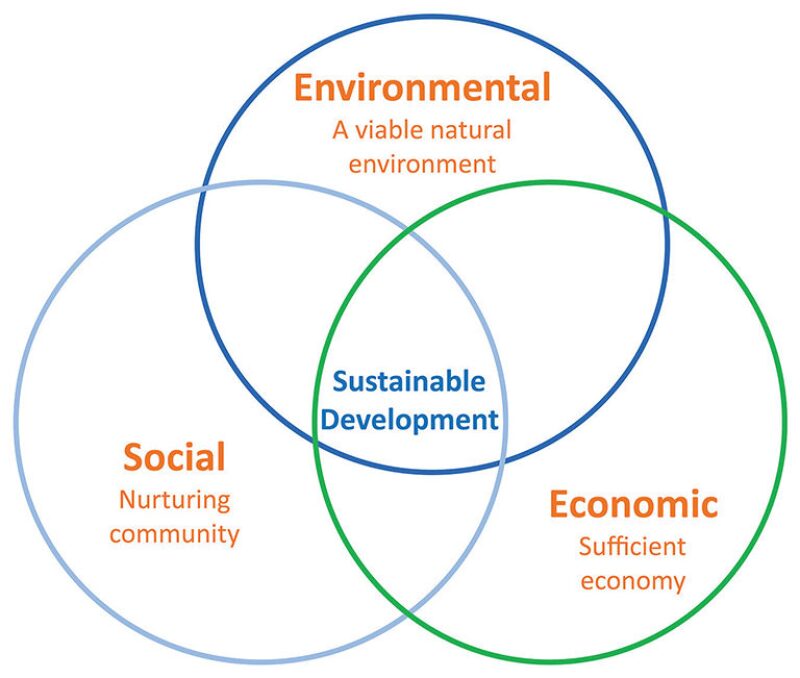The growing attention on sustainable development has prompted many oil and gas companies to take a hard look at their operations and to build a framework for making them more socially responsible.
Sustainable development is a broad concept that encompasses more than the traditional range of activities seen in most companies’ health, safety, and environment (HSE) departments, said Fernando Benalcazar, vice president of global implementation and vice president for Latin America at Equitable Origin. Sustainable development encourages all industries to pursue policies that respect human rights, protect the environment, benefit labor, and strengthen local communities. “No company operates in isolation anymore,” he said.
Benalcazar and Michael F. Ellekjær, head of corporate social responsibility (CSR) at Maersk Drilling, are members of the SPE Sustainability Committee who spoke during a recent webinar titled, “Embedding Sustainable Development into Operations.”
Benalcazar said many oil and gas companies started taking sustainable development more seriously after the United Nations formed the Brundtland Commission, which adopted standards for measuring sustainable development in the late 1980s. The commission ultimately encouraged member countries to pursue economic policies that meet “the needs of the present without compromising the ability of future generations to meet their own needs,” he said. The broader focus on sustainable operations has prompted many oil and gas companies to seek a balance between immediate needs and long-term goals.
Sustainable economic development (Fig. 1) has three considerations: environmental, economic and social. “All of these are interdependent and only the right balance of these three can lead to sustainable development,” Benalcazar said.

The three principles have forced some oil and gas companies to think more broadly when choosing projects. Managers seek projects that are not only profitable, but also socially responsible, he said.
To implement a sustainable development program, Benalcazar said an oil and gas company must engage all internal and external stakeholders as early as possible so that everyone understands the importance of sustainable operations and is committed to it. “Early engagement will make a big difference,” he said.
The company’s senior management must make the first commitment and then adopt formal policies to encourage middle and lower level managers to buy into the program. In addition, the company’s bonus package for managers must take into consideration the goal of sustainable operations. Oil and gas companies should also have a system in place for evaluating their progress toward sustainable operations, with performance targets measured internally or by an objective third party, he said.
Ellekjær described how Maersk Drilling implemented a CSR plan. The company is part of a family-owned business, whose owners believe in integrity and whose board stresses sustainability throughout the organization. But instilling this mind-set at all levels of the organization takes time. “We need to communicate why we think sustainability makes sense,” Ellekjær said.
Maersk is committed to the United Nations Global Compact, an initiative that encourages companies to support human rights, labor, and the environment, and to take a firm anticorruption stance when making business decisions.
Ellekjær said CSR is a natural extension of policies and procedures in many companies’ HSE departments. Previously, HSE departments were concerned about local matters, such as eliminating slips and spills and preventing pinched fingers on a work site. Its traditional focus is inward, while CSR forces a company to look outside itself. The change in focus forces managers to think more broadly about how their operations affect people outside the company, Ellekjær said.
The growing global concern about the need for sustainable development has forced many of Maersk’s stakeholders to look at the company carefully and prompted the company to become serious about implementing a CSR, Ellekjær said. The implementation has forced managers to balance different goals. They seek ways to develop financial value for the company, secure a good market position, and to benefit the communities in which Maersk operates, he said.
The company’s commitment to CSR extends to its suppliers and business partners. All contracts with them are re-evaluated periodically to ensure that they take the CSR goals into consideration, he said.
Many of the contracts require the company to buy a minimum amount of goods and services from local communities, a requirement that some local managers consider a burden. The company’s senior managers are working to change the mind-set and encourage local managers to embrace CSR as an opportunity to increase good will in local communities. “We are trying to create a situation where we can use local content as an opportunity instead of a burden,” he said.

